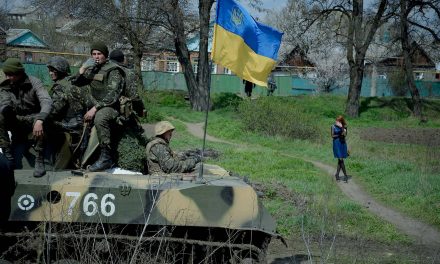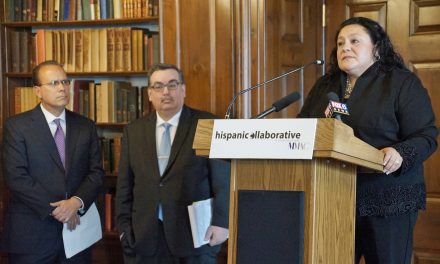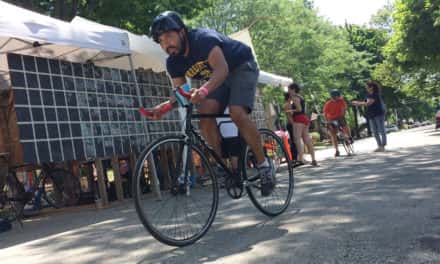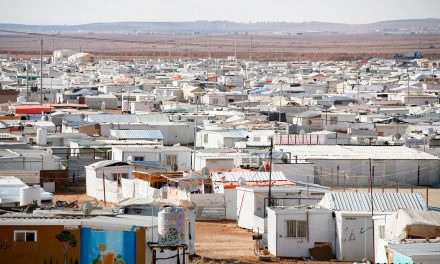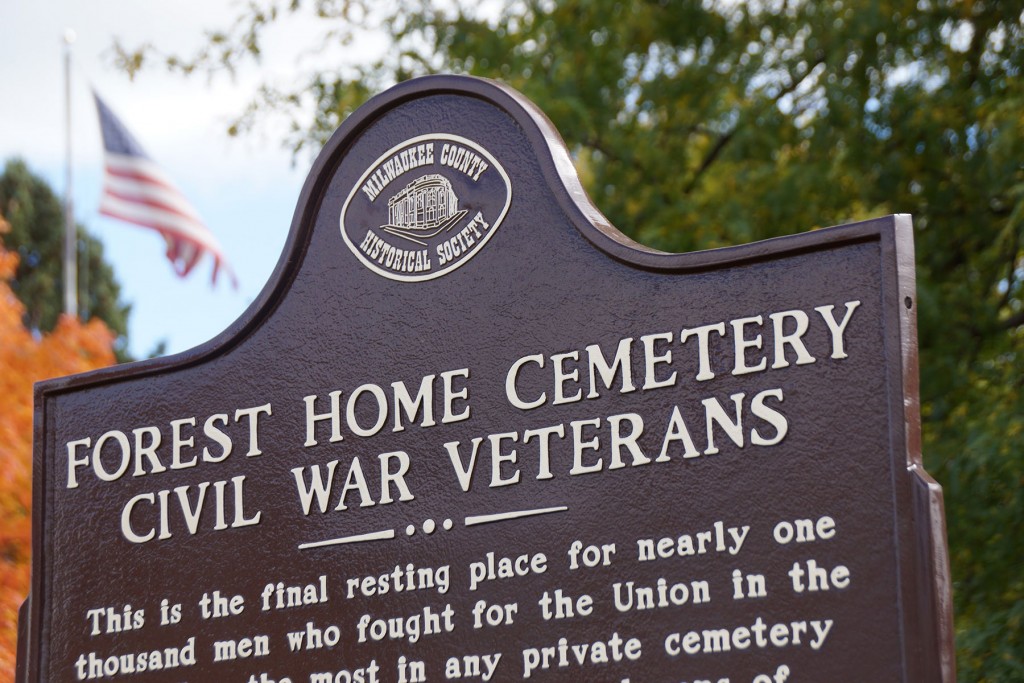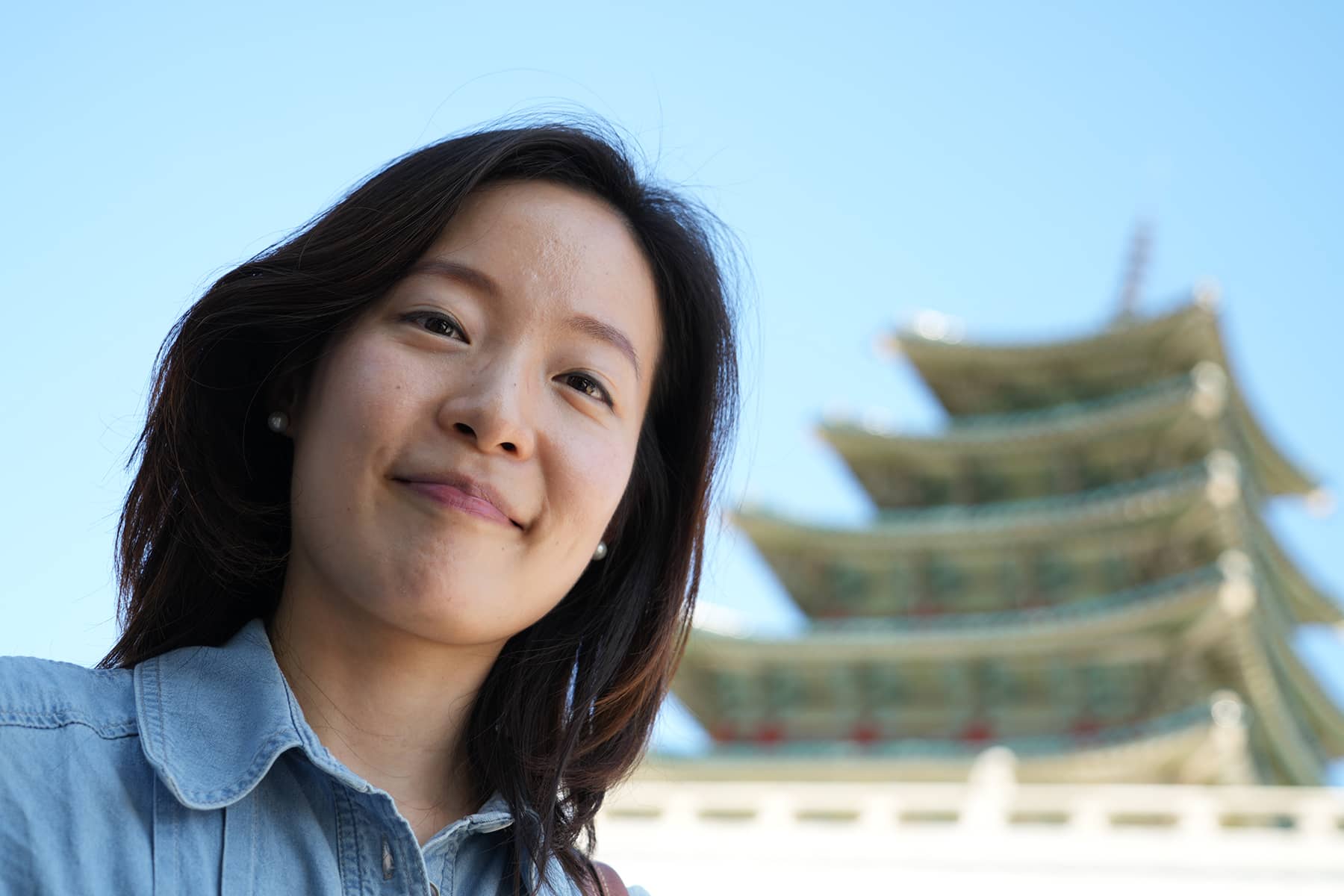
With the conditions of globalization as a fact of life for current generations, many individuals find themselves walking a fine line between cultures and the struggle to define their identity. For WonWoo Chung, such a balancing act has been central to her life’s journey.
Born and raised in South Korea, Chung spent many of her formative years in the United States, an experience that shaped her worldview and self-esteem. During an exclusive interview in Seoul with Milwaukee Independent, Chung opened up about her childhood, experiences living in Milwaukee, and the impact of navigating two different cultures.
Her reflections provide an intimate view into the challenges and rewards of embracing life in multiple cultural contexts.
Chung grew up in Seoul in the early 2000s, a vibrant metropolis known for its fast-paced life. But many of her happiest memories were of the times when her family would travel to her grandfather’s home on the east coast of Korea, in a rural region called Yeongdeok (영덕).
“I was excited for school breaks, because it meant I could visit my grandpa’s place. The journey from Seoul to the east coast could take up to five hours, depending on traffic. My family, all eight of us including my grandma, would pack into one van and the drive felt like an adventure. It was a break from the city,” said Chung. “Just being in the countryside gave me a sense of calmness, and I had great times there with my siblings.”
For a family used to the hustle and bustle of an urban environment, the trips offered respite and relaxation. They would indulge in local seafood delicacies, like bamboo crab, and partake in the slower pace of life in Yeongdeok.
For Chung, the time spent with her family was more than just the sharing of food or exploring the scenery. It was an opportunity to enrich her life and enjoy intimate moments with other family members free from daily distractions.
Chung’s upbringing was deeply rooted in her family’s values, which guided many of the decisions she made for her life. The commitment to education and priority of Christianity was also very strong at home. Her parents, devout in their faith, were dedicated to ensuring that their children received the best education possible.
“Being Asian, Korean parents have to really make sure that their kids get a good education from a very young age. I had to go to three or four different hagwon (학원), academies that offered private tutoring and supplemental learning after school,” said Chung. “They were really strict about that, strict about anything related to education and also the church.”
Both her parents became Christians in their early 40s. They took Chung and her brothers to worship services regularly. Chung said that her brothers did not enjoy the religious routine as much. But she embraced it, in part, due to her being a much more social person than her siblings.
“I went to multiple summer camps, missionary trips to Mongolia, and small islands near Korea for church functions,” said Chung. “I had fun. Faith was a big part of my upbringing, and it remains deeply entwined with who I am.”
Regarding her spiritual nature, Chung said that she still considered herself to be a Christian. However, she also saw faith as a life journey. That perspective evolved during her early adulthood, from the experiences gained and the time she spent overseas in places like Milwaukee.
“Because of that early influence, growing up going to church and later attending a Christian college in America, faith is still important to me,” said Chung. “But I also question a lot. I don’t have all the answers right now. I see it as an ongoing process, almost like a long-term project to explore the meaning of life. I still read the Bible occasionally, but I’m not the same person who accepts everything blindly.”
While Chung’s childhood was memorable for being peaceful and satisfying, her family’s history was marked by the turbulent events of Korea’s past. She shared stories from her grandparents, and the generation of Koreans who lived through the Japanese occupation and the Korean War.
“My grandmother on my father’s side was actually born in Japan during the Japanese occupation. She grew up in Osaka and had some of her elementary education there, before moving back to Korea after the Liberation,” said Chung. “Even now that she’s been fully Korean for all these decades of her life, she still occasionally speaks Japanese. It’s interesting because, despite her connection to that time, she doesn’t have many terrible memories to share. In contrast, my grandfather had a much tougher experience.”
Chung’s grandfather went through many ordeals during the Japanese occupation. One story that she remembered hearing about was how he avoided conscription – being forced to join the Japanese military, by fleeing from his hometown.
“He literally walked for three or four consecutive days without stopping just to get away from the Japanese. He had to travel all the way from Yeongdeok on the east coast of Korea to Seoul,” said Chung. “It was a hard journey to travel that distance on foot.”
While her grandparents did not often talk about the dark events from their past, their stories left an impression on Chung. What she was able to learn gave her a deeper perspective on what her family went through.
“Growing up, I often tried to ask more questions of my grandparents, because I was genuinely intrigued and curious about what they experienced in their lives. But looking back now, I can understand that was a time they would not just happily share details about, because it’s nothing to be celebrated,” said Chung. “I think they avoided sharing too much because the memories were so traumatic.”
Another example was the often unspoken legacy of the Korean War, commonly referred to as 6.25 (육이오) or yug-io for the date of North Korea’s invasion. Chung said that her grandparents sometimes had a hard experience during civilian safety drills. The sirens reminded them of military alerts from during the war.
As hard as things may have been for her family during the occupation and war years, there were elements of those times that sparked Chung’s curiosity regarding how the world fit together for good or bad. She developed an interest in other cultures and languages from an early age.
“I’ve always been a very inquisitive person, interested in people from different backgrounds. Even within Korea, I loved hearing stories from people who were different from me,” said Chung. “When I was around 14 or 15, there was a trend where a lot of families in Korea started sending their kids to the U.S. for exchange programs, for just a year or two. That’s when my parents decided to send me and my brother to the States.”
Chung was always eager to explore. When the opportunity came to go abroad, she jumped at the chance. She felt driven to experience a new culture and see more of the world.
“Milwaukee wasn’t my first city in the U.S. to live, or my last, but it was the place where I stayed the longest and it was certainly the most influential,” said Chung.
She initially went to a private boarding school, but the cost was too high because of the economy and currency exchange rates. A friend of her father who happened to live in Milwaukee, SeonJoo So Oh, helped him to make some local connections. Chung then ended up staying with a host family in Milwaukee. She attended Pius XI High School from her sophomore year in 2008 to her senior year in 2011.
“My host family, the Barnes, were a middle-class White family living in a suburb about 20 minutes outside the city,” said Chung. “My experience with them was one of the best times of my life. They were so open-minded and welcoming. They wanted to learn about my culture, and I was eager to learn about theirs. It was a real cultural exchange.”
Chung said that they treated her like family, and she experienced everything about the Midwest with them, from Thanksgiving to Easter and Christmas. She also cherished her exposure to nature and the vastness of the Midwest area, with its many parks and lakes.
“It was amazing to be a part of their family traditions. One thing that really struck me was how open and accepting they were,” said Chung. “In Korea, it’s rare for people to host exchange students like that because everyone is so busy with their own lives. I also think that Koreans tend to be a little bit guarded. But in Milwaukee, they embraced me, and I will always be grateful for that.”
One of the main things that stood out to Chung during her time in Milwaukee was the kindness and openness of everyone she encountered. Above everything else, she really missed the people after returning to Korea. Chung said that Milwaukee had some of the nicest people she had ever met. And with the COVID-19 pandemic finally in the review mirror, she was able to make a long overdue visit.
“The main reason that I went to Milwaukee recently was to see the people who I really love, my host family, the Barnes family. I had not been able to see them for six years,” said Chung. “They have been sending me all these care packages since I was in college. They’re so nice and so sweet, and so American. Even my own parents would never think to send me that kind of thing.”
Her Milwaukee host parents would ask about Chung’s favorite snacks, and among them were animal crackers. They would go hunt for animal crackers at the Walmart. Then they would go to an Asian grocery store to look for the Korean food that she missed. The boxes would arrive regularly to her while at college, and well after she returned to Seoul.
“I went to see them in Milwaukee to say hello. It was a very short visit, but I had a good time,” said Chung. “I just miss the culture and people in Milwaukee. So whenever I get a chance, I would love to go back for a visit.”
Chung felt that living in the U.S. taught her what it meant to be a minority, because she had always been part of a majority when she lived in Korea. It allowed her to see things from different perspectives and to appreciate the diversity of thought and culture. She also formed long-lasting friendships at the Christian schools where she was educated, and felt that having those friendships was very transformative for her life and faith.
“My time in Milwaukee had a profound impact on my understanding of identity and what it means to belong. I think I definitely grew so much as a person because I was not immersed in a familiar environment,” said Chung. “Every day I woke up, I had to speak a different language. I lived with a family who was not Korean for three years. Then I went to college where there were literally only three or four Koreans out of 2,000 students. So I was always a minority, and it was an interesting experience for me.”
After spending a decade in the “inclusiveness” of U.S. culture, with about one-third of that time in Milwaukee, Chung returned home to Korea. The transition came with new and exciting opportunities, but also brought its own challenges as well.
“So now I’m back in Korea. It’s been almost five years since I came back, but I still feel like I’m an outsider. When I think about why, I realize it means that I have changed based on my experience in the States,” said Chung. “And just the idea that people don’t always think the same, and I’m not always right, I learned that from living in a culture that’s so different from mine.”
Chung declined to mention where she worked in Seoul, but noted that it was a major Korean company. As such, it had a very Korean hierarchical structure to its kind of corporate culture, being also very strict and conservative.
“People who grew up and were raised in Korea would see me as Korean, because I look Korean. But they will then notice that some of the words I use are English. Maybe they think I’m just showing off. But in reality, it is only because I cannot think of the correct term in Korean,” said Chung. “So if I am showing anything, it is that I have forgotten some of my mother tongue because I was away for so long.”
Chung said that she could observe how differently her thought process was from her co-workers, something she was reminded of almost every day. Her colleagues were hardworking, full of the grit and determination to succeed that Koreans are known for. But it also meant they had a very strong and very strict expectation of what it meant to be Korean, and judged her against those beliefs. Chung felt they had a low expectation of her because of it, that she could not really fit into the “exclusiveness” of Korean culture or was capable of doing so.
“To be honest, even when I’m with my parents … do I feel 100% at peace? Do I feel 100% Korean? I don’t,” said Chung. “There are huge parts of me that my parents cannot empathize with. They have never lived in the States. They didn’t have the experiences that I had. So I feel like my life has a lot of different puzzle pieces. Some fit together, many do not.”
For Chung, her husband is a reliable source of stability. He is also Korean, and shared many of the same experiences as her own from living in America. He spent time growing up in Utah, where his whole family had moved to in his youth. Chung jokingly noted that his family were not Mormons. She added that he also felt out of place at times in Korean culture, and some of those experiences were a bit harder for him to process.
“Do I feel 100% at peace with my husband? I can’t really answer that as ‘yes,’ because he and I even have different experiences too. But I think we do have a lot of things in common, and I do feel a great deal of comfort from my relationship with him,” said Chung. “I feel a sense of affirmation just knowing that my experience, which is so different from other Koreans, is validated by his life journey.”
Chung added that because her husband also had his own unique and personal circumstances, she could not empathize 100% with all that he went through growing up. But the fact that they had so many parallel experiences made her feel less alone. It added to her comfort, that someone else could also have had a different life and developed a different way of thinking, and that it was okay to be different. She was not the only one.
“I hope that I can somehow contribute to helping others who don’t always feel that they belong. Everyone has their own story, and that may set them apart from what we think of as familiar experiences. Maybe they feel isolated when others cannot empathize with their unique background,” Chung added. “My wish would be that as I share my life journey, it will give others permission to open up and share their own. The more we can learn, the more we can understand, the more tools we have to find peace with where we are in life.”
- Exploring Korea: Stories from Milwaukee to the DMZ and across a divided peninsula
- A pawn of history: How the Great Power struggle to control Korea set the stage for its civil war
- Names for Korea: The evolution of English words used for its identity from Gojoseon to Daehan Minguk
- SeonJoo So Oh: Living her dream of creating a "folded paper" bridge between Milwaukee and Korean culture
- A Cultural Bridge: Why Milwaukee needs to invest in a Museum that celebrates Korean art and history
- Korean diplomat joins Milwaukee's Korean American community in celebration of 79th Liberation Day
- John T. Chisholm: Standing guard along the volatile Korean DMZ at the end of the Cold War
- Most Dangerous Game: The golf course where U.S. soldiers play surrounded by North Korean snipers
- Triumph and Tragedy: How the 1988 Seoul Olympics became a battleground for Cold War politics
- Dan Odya: The challenges of serving at the Korean Demilitarized Zone during the Vietnam War
- The Korean Demilitarized Zone: A border between peace and war that also cuts across hearts and history
- The Korean DMZ Conflict: A forgotten "Second Chapter" of America's "Forgotten War"
- Dick Cavalco: A life shaped by service but also silence for 65 years about the Korean War
- Overshadowed by conflict: Why the Korean War still struggles for recognition and remembrance
- Wisconsin's Korean War Memorial stands as a timeless tribute to a generation of "forgotten" veterans
- Glenn Dohrmann: The extraordinary journey from an orphaned farm boy to a highly decorated hero
- The fight for Hill 266: Glenn Dohrmann recalls one of the Korean War's most fierce battles
- Frozen in time: Rare photos from a side of the Korean War that most families in Milwaukee never saw
- Jessica Boling: The emotional journey from an American adoption to reclaiming her Korean identity
- A deportation story: When South Korea was forced to confront its adoption industry's history of abuse
- South Korea faces severe population decline amid growing burdens on marriage and parenthood
- Emma Daisy Gertel: Why finding comfort with the "in-between space" as a Korean adoptee is a superpower
- The Soul of Seoul: A photographic look at the dynamic streets and urban layers of a megacity
- The Creation of Hangul: A linguistic masterpiece designed by King Sejong to increase Korean literacy
- Rick Wood: Veteran Milwaukee photojournalist reflects on his rare trip to reclusive North Korea
- Dynastic Rule: Personality cult of Kim Jong Un expands as North Koreans wear his pins to show total loyalty
- South Korea formalizes nuclear deterrent strategy with U.S. as North Korea aims to boost atomic arsenal
- Tea with Jin: A rare conversation with a North Korean defector living a happier life in Seoul
- Journalism and Statecraft: Why it is complicated for foreign press to interview a North Korean defector
- Inside North Korea’s Isolation: A decade of images show rare views of life around Pyongyang
- Karyn Althoff Roelke: How Honor Flights remind Korean War veterans that they are not forgotten
- Letters from North Korea: How Milwaukee County Historical Society preserves stories from war veterans
- A Cold War Secret: Graves discovered of Russian pilots who flew MiG jets for North Korea during Korean War
- Heechang Kang: How a Korean American pastor balances tradition and integration at church
- Faith and Heritage: A Pew Research Center's perspective on Korean American Christians in Milwaukee
- Landmark legal verdict by South Korea's top court opens the door to some rights for same-sex couples
- Kenny Yoo: How the adversities of dyslexia and the war in Afghanistan fueled his success as a photojournalist
- Walking between two worlds: The complex dynamics of code-switching among Korean Americans
- A look back at Kamala Harris in South Korea as U.S. looks ahead to more provocations by North Korea
- Jason S. Yi: Feeling at peace with the duality of being both an American and a Korean in Milwaukee
- The Zainichi experience: Second season of “Pachinko” examines the hardships of ethnic Koreans in Japan
- Shadows of History: South Korea's lingering struggle for justice over "Comfort Women"
- Christopher Michael Doll: An unexpected life in South Korea and its cross-cultural intersections
- Korea in 1895: How UW-Milwaukee's AGSL protects the historic treasures of Kim Jeong-ho and George C. Foulk
- "Ink. Brush. Paper." Exhibit: Korean Sumukhwa art highlights women’s empowerment in Milwaukee
- Christopher Wing: The cultural bonds between Milwaukee and Changwon built by brewing beer
- Halloween Crowd Crush: A solemn remembrance of the Itaewon tragedy after two years of mourning
- Forgotten Victims: How panic and paranoia led to a massacre of refugees at the No Gun Ri Bridge
- Kyoung Ae Cho: How embracing Korean heritage and uniting cultures started with her own name
- Complexities of Identity: When being from North Korea does not mean being North Korean
- A fragile peace: Tensions simmer at DMZ as North Korean soldiers cross into the South multiple times
- Byung-Il Choi: A lifelong dedication to medicine began with the kindness of U.S. soldiers to a child of war
- Restoring Harmony: South Korea's long search to reclaim its identity from Japanese occupation
- Sado gold mine gains UNESCO status after Tokyo pledges to exhibit WWII trauma of Korean laborers
- The Heartbeat of K-Pop: How Tina Melk's passion for Korean music inspired a utopia for others to share
- K-pop Revolution: The Korean cultural phenomenon that captivated a growing audience in Milwaukee
- Artifacts from BTS and LE SSERAFIM featured at Grammy Museum exhibit put K-pop fashion in the spotlight
- Hyunjoo Han: The unconventional path from a Korean village to Milwaukee’s multicultural landscape
- The Battle of Restraint: How nuclear weapons almost redefined warfare on the Korean peninsula
- Rejection of peace: Why North Korea's increasing hostility to the South was inevitable
- WonWoo Chung: Navigating life, faith, and identity between cultures in Milwaukee and Seoul
- Korean Landmarks: A visual tour of heritage sites from the Silla and Joseon Dynasties
- South Korea’s Digital Nomad Visa offers a global gateway for Milwaukee’s young professionals
- Forgotten Gando: Why the autonomous Korean territory within China remains a footnote in history
- A game of maps: How China prepared to steal Korean history to prevent reunification
- From Taiwan to Korea: When Mao Zedong shifted China’s priority amid Soviet and American pressures
- Hoyoon Min: Putting his future on hold in Milwaukee to serve in his homeland's military
- A long journey home: Robert P. Raess laid to rest in Wisconsin after being MIA in Korean War for 70 years
- Existential threats: A cost of living in Seoul comes with being in range of North Korea's artillery
- Jinseon Kim: A Seoulite's creative adventure recording the city’s legacy and allure through art
- A subway journey: Exploring Euljiro in illustrations and by foot on Line 2 with artist Jinseon Kim
- Seoul Searching: Revisiting the first film to explore the experiences of Korean adoptees and diaspora























